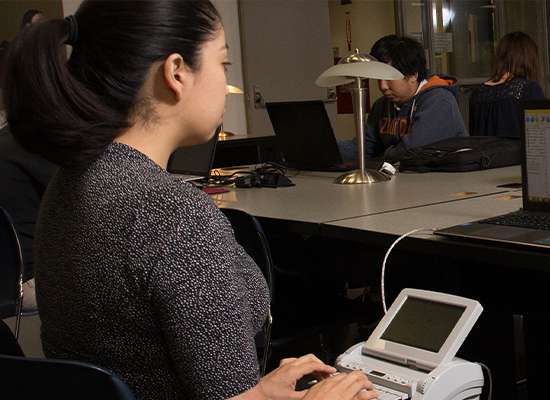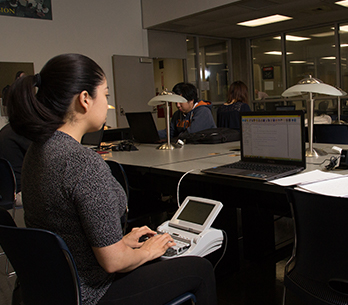The Role of court reporting in Securing Accuracy in the Legal System
The Role of court reporting in Securing Accuracy in the Legal System
Blog Article
Understanding the Necessary Function of Court Coverage in Legal Process
Court reporting is frequently neglected, yet it's vital in legal process. You might not recognize how court press reporters guarantee every word spoken is videotaped properly, impacting choices made by discretionary. Their abilities and innovation play a considerable role in keeping the integrity of legal documents. But just what does the procedure include, and how has it developed with time? Let's discover the essential functions of court coverage and its importance in the lawful landscape.
The History of Court Reporting
Court coverage has a rich history that goes back to old human beings, where scribes utilized numerous approaches to record spoken words. The earliest kinds of shorthand emerged in Greece around 400 BC, enabling philosophers and politicians to tape-record speeches swiftly. As you relocate via background, you'll find that the Romans adopted comparable methods, fine-tuning them to record legal proceedings. By the 16th century, modern shorthand systems started to form, making it possible for stenotype reporter to generate exact records successfully.
Today, court reporters play a considerable role in legal proceedings, ensuring that every word spoken in the court room is properly recorded. Recognizing this history highlights the significance of court coverage in keeping a reasonable legal system.
The Abilities Needed for Court Reporters
As a court press reporter, you require strong inputting skills to stay on top of the fast-paced dialogue of legal process. Your ability to listen diligently is simply as vital, making sure every word is captured accurately. Grasping these abilities is vital to delivering accurate and trustworthy transcripts.
Proficient Keying Abilities

Strong Paying Attention Abilities
Strong paying attention abilities are crucial for court press reporters, as they have to accurately capture talked words in real time. This ability aids you differentiate between speakers, comprehend lawful lingo, and follow intricate conversations. Inevitably, strong paying attention skills make you a vital property in legal procedures, making certain quality and precision in the court document.
The Innovation Behind Court Reporting
In the domain of legal procedures, modern technology plays an essential duty in boosting the precision and efficiency of court coverage. You're likely familiar with the conventional stenotype maker, but contemporary stenotype reporter currently utilize innovative software program that integrates with these machines, permitting real-time transcription. This suggests you can have instantaneous access to the transcript as the process unfold.
Digital audio recording is another technical improvement that's obtaining traction. It catches every spoken word, guaranteeing absolutely nothing is missed. Some reporters make use of voice recognition software program, which can assist improve the transcription procedure, though it still needs human oversight for precision.
Furthermore, cloud-based storage permits easy access and sharing of records, enhancing partnership among legal teams. By leveraging these innovations, stenotype reporter can provide premium, timely documents that are vital for the legal procedure. Welcoming this tech not just enhances your understanding however also ensures reliability in legal documents.
The Court Coverage Process

As legal procedures unravel, the court reporting procedure ends up being essential in catching every detail properly. You'll locate that a court press reporter plays a crucial duty by recording talked words right into composed message in real-time. When you step right into the court room, the press reporter is already prepared, furnished with specialized tools like stenographic equipments and audio recording tools.
During the process, the reporter listens diligently, inputting out every little thing stated, from witness testaments to lawyers' arguments. You may see them stopping briefly periodically to assure quality or to ask for a repeat if something had not been clear. After the session, the reporter reviews the transcript, making required edits for readability.
This entire process not just ensures a thorough document yet additionally prepares you for future recommendation during appeals or instance testimonials. In the fast-paced setting of a courtroom, the court reporting process is crucial for preserving an accurate account of events.
The Significance of Precision in Transcripts
While a court reporter's primary task is to transcribe spoken words, the precision of these records is critical for the integrity of lawful process. When you're entailed in a situation, you count on accurate documentation to recognize the events and debates presented. Any type of errors in transcription can result in misunderstandings, misconceptions, and even wrongful judgments.
Exact transcripts ensure that every information is captured, offering a trusted record for link judges, lawyers, and courts. This level of detail is vital throughout allures or when referencing past statements. If a records has inaccuracies, it can threaten the whole legal process, possibly affecting results.
Additionally, exact records maintain the rights of all celebrations entailed, advertising justness and openness. Whether you're a legal representative preparing for test or a witness reflecting on your testimony, you can rely on that the court reporter's ability in precision plays a considerable function in your case's success.
The Duty of Court Reporters in Different Legal Setups
Stenotype reporter play a vital duty in various lawful settings, from trials to depositions and legal hearings. You'll locate that their job warranties every talked word is properly recorded, which is essential for the lawful procedure. Understanding how their obligations vary throughout these settings can highlight their effect on the justice system.
Court Reporters in Trials
In any type of legal test, you'll find that court reporters play a necessary role in recording the proceedings with precision and accuracy. They transcribe everything spoken in the courtroom, ensuring that every word is recorded for future referral. This document comes to be essential for appeals, enabling greater courts to assess the trial's honesty. Court press reporters need to preserve emphasis and rate, commonly utilizing specialized devices to stay up to date with fast-paced discussion. Their work supports legal representatives, judges, and juries by providing a main account of testaments and arguments. If inconsistencies emerge, the records serves as a look at more info dependable resource to clarify what was stated. Ultimately, stenotype reporter help copyright the justice system, ensuring openness and responsibility throughout tests.
Depositions and Lawful Hearings
Beyond trials, stenotype read this article reporter likewise play a necessary role in depositions and lawful hearings. Throughout these process, they capture every talked word, making sure an exact record of statements and conversations. You'll locate that this accuracy is essential, as depositions typically offer as a foundation for later arguments in court. Stenotype reporter provide real-time transcription services, enabling lawyers to follow along and address any kind of problems immediately. Their job enhances the efficiency of legal hearings, making it much easier for all events to refer back to the authorities document. Furthermore, the records they generate can be significant for appeals and other lawful processes - court reporting. In short, stenotype reporter are essential in preserving the honesty and clearness of the legal document in depositions and hearings.
Future Fads in Court Coverage
As modern technology proceeds to advance, the future of court reporting guarantees to be shaped by cutting-edge tools and techniques that enhance accuracy and performance. You'll likely see enhanced use artificial knowledge and real-time transcription solutions, enhancing the reporting process. These advancements can aid you accessibility transcripts much faster, which can be essential for your lawful techniques.
Furthermore, integrating video conferencing and remote reporting will come to be extra typical, enabling you to get in touch with stenotype reporter from anywhere (court reporting). This flexibility can make depositions and hearings a lot more available, saving both time and resources
You'll also see an emphasis on electronic recordkeeping, which simplifies the storage space and access of transcripts. With cloud-based solutions, you'll have the ability to share records securely and work together with your lawful team in real-time.
Regularly Asked Inquiries
What Is the Typical Salary of a Stenotype Reporter?
The ordinary salary of a court reporter differs by location and experience, however you can expect it to vary from around $50,000 to $80,000 every year. Many aspects affect this earnings, consisting of expertise and need.
Just how Do I End Up Being a Qualified Court Reporter?
To become a qualified stenotype reporter, you'll need to complete a court reporting program, pass an accreditation exam, and gain sensible experience. It's critical to stay upgraded on market standards and proceeding education and learning demands.
What Types of Situations Do Court Reporters Cover?
Court reporters cover various situations, including criminal tests, civil legal actions, depositions, and settlement hearings. You'll locate them documenting whatever, making sure precise records for courts, attorneys, and parties entailed, capturing every word talked in lawful setups.
Are Court Reporters Required to Have a Level?
Yes, stenotype reporter typically require a degree or qualification in court coverage. Numerous programs provide specialized training, ensuring you acquire the skills required for precise transcription and legal paperwork in different setups.
Can Court Reporters Work Remotely?

Report this page